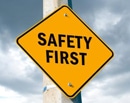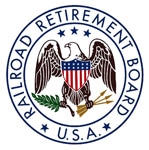The Association of American Railroads (AAR) reports that a homemade knife was found in a chock in the storage bin (pictured below), with the blade facing in toward the railcar at a Subaru facility in Vancouver, Wash.
The knife was found when a rail loader went to remove a chock from the storage bin on the side of the rail car, when he noticed the homemade knife sticking out of the chock next to the release handle. Fortunately, no one was injured.
“Please give this information widespread distribution to coworkers, contractors, customers and all who deal with freight cars and be on the lookout for any similar acts of vandalism. We also ask that anyone who makes any other such discoveries report it to me or any other AAR employee, including MID inspectors. This will enable us to broadcast alerts to all who may be affected,” AAR Assistant Vice President, Technical Services James P. Grady said.
Author: amyr

The commodities these tank cars carry are wide and varied, almost a who’s who of the chemical industry. And yes, some of them are dangerous.
A recent CSX tank train rolling through the crossing on Liberty Street at Middlebrook Pike offered a virtual montage of commodities shipped regularly by rail through Knoxville: LP gas, hot molten sulfur, isopropyl alcohol, piperidine and more, all identified by their four-digit hazmat code numbers displayed in a diamond-shaped sign on each car’s side.
Read more from the Knoxville News Sentinel.

Yes, you read that right: The nation that tore up most of its interurban and streetcar systems when (conspiracy theorists and many “trolley jollys” claim) General Motors began buying them up, tearing them up and replacing steel-wheeled vehicles with its rubber-tired diesel buses, has since the Millenium built more LRT and streetcar systems—23—than even France, which has built (no doubt influenced by Alstom) a mere vingt (20).
Mull over that as you munch on your pommes frites (Freedom Fries) at your local burger joint. Viva Les Etats-Unis!
Read more from RailwayAge.

Montana has no active rail safety plan and employs only two inspectors to cover the vast state, the Montana Legislative Audit Division report released Wednesday said. In addition, there is a lack of statewide emergency planning and hazardous-material response capability should an oil spill occur, the report found.
That’s a potentially precarious situation with a new crude oil transfer station in North Dakota coming online that should boost oil traffic crossing Montana from about 10 trains a week to up to 15 cars per week. One out of every five Montanans lives in an evacuation zone for an oil-train derailment, which is within a half-mile of a rail line, the report said.
Read more from ABC News.

At a news conference outside the U.S. Capitol, U.S. Sens. Roger Wicker (R-Miss.), Dianne Feinstein (D-Calif.) and Richard Blumenthal (D-Conn.), announced their opposition to a federal mandate that would allow trucks to pull double 33-foot trailers — up from the current limit of 28 feet — on the nation’s highways.
Read more from Progressive Railroading.

CSX announced Tuesday that the shops will be closed, affecting about 180 active employees at the facilities. All affected employees at Corbin will receive at least 60 days of pay and benefits, CSX said in a news release.
Union employees also may have other benefits available in accordance with their labor agreements, CSX said. Many furloughed employees will be eligible for jobs in higher-demand areas on CSX’s network.
Read more from News4JAX.
Members of rail labor’s Coordinated Bargaining Group (CBG), composed of representatives from the SMART Transportation Division, the Brotherhood of Locomotive Engineers and Trainmen, the American Train Dispatchers Association, the National Conference of Firemen and Oilers/SEIU, The Brotherhood of Railroad Signalmen and the International Brotherhood of Boilermakers, Iron Ship Builders, Blacksmiths, Forgers and Helpers met with the National Carriers Conference Committee (NCCC) in Chicago on October 14, 2015, to continue negotiations on a new national rail contract. This meeting was the latest in a series that commenced early in 2015.
Although a final agreement is not yet in sight, substantive progress was made in identifying the issues of greatest importance to both sides and serious discussions are ongoing. Both parties believe that a voluntary agreement is the desired outcome and to that end it was agreed to continue negotiations without the assistance of a third party. The next session is scheduled for November in Crystal City, Virginia, with additional meetings set for the first quarter of 2016.

Also, because there is no cost-of-living adjustment (COLA), social security law prohibits an increase in the amounts social security and railroad retirement beneficiaries subject to earnings restrictions can earn in 2016 without having their benefits reduced.
For those under full retirement age throughout 2016, the exempt earnings amount remains at $15,720. For beneficiaries attaining full retirement age in 2016, the exempt earnings amount, for the months before the month full retirement age is attained, remains at $41,880 in 2016.
For employee and spouse annuitants, full retirement age ranges from age 65 for those born before 1938 to age 67 for those born in 1960 or later. For survivor annuitants, full retirement age ranges from age 65 for those born before 1940 to age 67 for those born in 1962 or later.
Special work restrictions continue to be applicable to disability annuitants. In 2016, the monthly disability earnings limit will increase to $880, up from $850 in 2015.
Regardless of age and/or earnings, no railroad retirement annuity is payable for any month in which an annuitant (retired employee, spouse or survivor) works for a railroad employer or railroad union.
The Centers for Medicare & Medicaid Services has not yet announced Medicare Part B premium changes for 2016. The law includes a “hold harmless” provision that provides the Medicare Part B premium will not increase for most current enrollees if there is no cost-of-living adjustment to social security benefits. However, this does not apply to new Medicare enrollees or certain high-income Medicare beneficiaries.
Information about Medicare premiums for 2016, when available, will be found at www.medicare.gov.
United Continental Holdings Inc’s new chief executive officer has suffered a heart attack, a person familiar with the matter said on Friday, barely a month after he took on the job of improving the airline’s profitability and reputation.
The board at United – the No. 2 U.S. carrier by capacity – was informed “promptly” after Oscar Munoz was taken to hospital, the person said.
“There’s no reason for the board to meet,” the person said. “We’re still gathering information about his medical condition and prognosis.”
United’s previous chief executive left while federal authorities were conducting an investigation involving the Port Authority of New York and New Jersey.
Read more from Reuters.
Munoz was the number two executive of CSX when he left in September to pursue a career as CEO of United Airlines.

The railroad used a catastrophe bond to secure the coverage, which lasts just under three years and helps protect against the kind of infrastructure damage that Amtrak experienced during Hurricane Sandy in October 2012.
Read more from Progressive Railroading.
